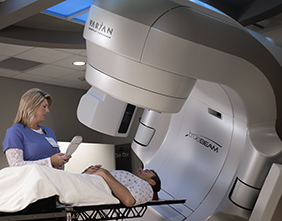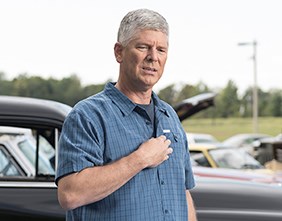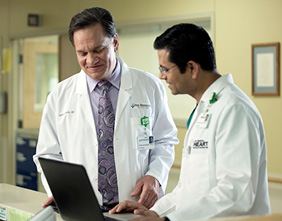“What’s My Risk?”
posted on: 3/15/2019 3:30:24 PM
Michael B. Tempel, MD, FACS, FASCRS
Midwest Surgical Specialists
Lima Memorial Physicians

The American Cancer Society predicts there will be 101,000 new cases of colon cancer and 44,000 cases of rectal cancer in 2019. While the patient is the focus of treatment, family members are often left wondering what their risk of the disease is in the long term.
Cancer is a complex process from every aspect, how it starts, how it grows, how it spreads and how your body responds to it. Even more complex is the treatment involved, including the timing of radiation, the need for chemotherapy, the timing of surgery, the extent of surgery, and whether surgery is even needed at all.
As advances in medicine occur on a seemingly daily basis, we are finding that genetics play a vital role in the development of cancer. Inherited / genetic syndromes account for a minority of new colorectal cancer cases. These are characterized by the onset of colorectal cancer at an early age, particularly before the age of 50. Additionally, there is often a history of other cancers (not colorectal cancer) in the family. Examples of these are stomach, ovarian, uterine and bladder cancer. Risk for developing these cancers is higher when first-degree relatives (parents, siblings and children) have been diagnosed with cancer. Not only are these syndromes rare, it is even more uncommon for these conditions to be diagnosed later in life. For example, it is rare for someone to be diagnosed with Lynch Syndrome – a type of inherited cancer syndrome associated with a genetic predisposition to different cancer types - at the age of 60 or older.
Despite the rarity of these syndromes, simple inheritance patterns and family history influence whether or not someone will develop colorectal cancer. For the average individual without a genetic predisposition, the lifetime risk of developing colon or rectum cancer is approximately 4 – 6 percent. That risk approaches between the ages of 45-50. Compared to a patient without a family history, patients with a first-degree relative affected with colon cancer have approximately twice the risk of developing the same cancer themselves. If you have a first-degree relative who was diagnosed with colorectal cancer before age 60, you should start your screening at age 40 or 10 years prior to the age your relative was diagnosed, whichever comes first. For example, if your mother was diagnosed at age 55, you should start your screenings at 40 and repeat every 5 years. If your mother was 45 when she was diagnosed, you should begin screening at age 35 with a colonoscopy and repeat every 5 years. Additionally, this recommendation holds true if you have two first-degree relatives affected, regardless of age.
If you have a first-degree relative who is older than 60 when they were diagnosed, you should start your screenings at age 40. You should note that second-degree relatives (grandparents, aunts and uncles) and third-degree relatives (cousins) who have had colon cancer do not significantly increase your own risk.
In conclusion, a person’s family history definitely plays a part in whether or not cancer will develop. Risk increases in a patient the younger his or her relative(s) developed cancer. The more relatives affected, the higher the risk the patient has. Knowing your own family history, type of cancer, relation and age of onset, is vital information to share with your physician. A patient with a history of colon cancer in his / her parent is approached different than if the affected relative is an aunt.
There are numerous methods to assess risk in any patient, particularly those with a strong family history. Using these methods, in combination with frequent surveillance and a multidisciplinary team approach to cancer, patients today can usually obtain favorable outcomes.
Sources
American Cancer Society
US Multisociety Task Force
American College of Gastroenterology
American Society of Colon and Rectal Surgeons
Originally published in The Lima News Health and Fitness section.
Website






